Search
Remove Ads
Advertisement
Summary 
Loading AI-generated summary based on World History Encyclopedia articles ...
Search Results
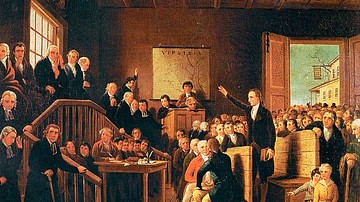
Definition
Parson's Cause
The Parson's Cause was a legal and political controversy that arose in the British colony of Virginia in the early 1760s. In response to the royal veto of the Two Penny Act, a policy passed by Virginia's House of Burgesses, a young lawyer...

Image
Patrick Henry Arguing the Parson's Cause
Patrick Henry as a young lawyer arguing the Parson's Cause. Oil on canvas by George Cooke, c. 1834.
Virginia Historical Society, Richmond.

Video
Debunking the Myth of the Lost Cause: A Lie Embedded in American History - Karen L. Cox
Examine the myth of the Lost Cause: a campaign created by pro-Confederates after the Civil War to promote the lie that they seceded for state's rights. In the 1860’s, 11 southern states withdrew from the United States and formed the Confederacy...

Article
Clergy, Priests & Priestesses in Ancient Egypt
The ancient Egyptians understood that their gods had prevailed over the forces of chaos through the creation of the world and relied upon humanity's help to maintain it. The people of Mesopotamia held this same belief but felt they were co-workers...
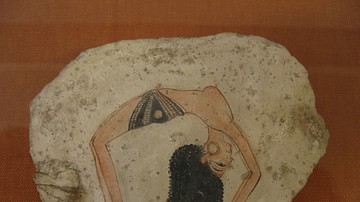
Article
Music & Dance in Ancient Egypt
Music and dance were highly valued in ancient Egyptian culture, but they were more important than is generally thought: they were integral to creation and communion with the gods and, further, were the human response to the gift of life and...
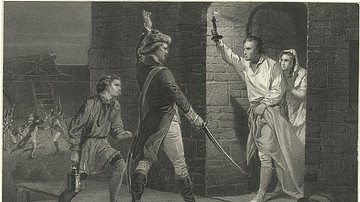
Article
Capture of Fort Ticonderoga
The Capture of Fort Ticonderoga (10 May 1775) was a military operation that occurred early in the American Revolutionary War (1775-1783). A small colonial expedition jointly led by Benedict Arnold and Ethan Allen surprised the British garrison...
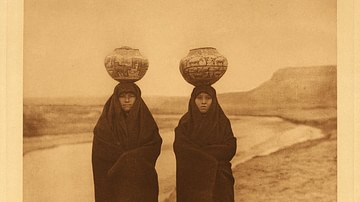
Article
Paiyatuma & the Maidens of the Corn
Paiyatuma and the Maidens of the Corn is a legend of the Zuni nation of the Pueblo peoples of the Southwest of the modern-day USA. Paiyatuma (also given as Paiyatamu) is a kachina spirit – an elemental entity – known to the Zuni as "The God...
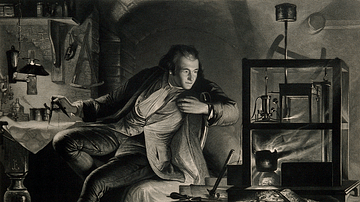
Article
The Steam Engine in the British Industrial Revolution
Steam power was one of the most significant developments of the Industrial Revolution (1760-1840) in Britain. First invented as a pump in the 1690s, a host of inventors tweaked designs and tinkered with machinery until an efficient and powerful...

Definition
Greek Philosophy
Ancient Greek philosophy is a system of thought, first developed in the 6th century BCE, which was informed by a focus on the First Cause of observable phenomena. Prior to the development of this system by Thales of Miletus (l. c. 585 BCE...

Definition
Philolaus
Philolaus (l. c. 470 to c. 385 BCE) was a Pythagorean philosopher who claimed that fire was the first cause of existence and heat the underlying source of human life. He is best known for his pyrocentric model of the universe, which replaced...